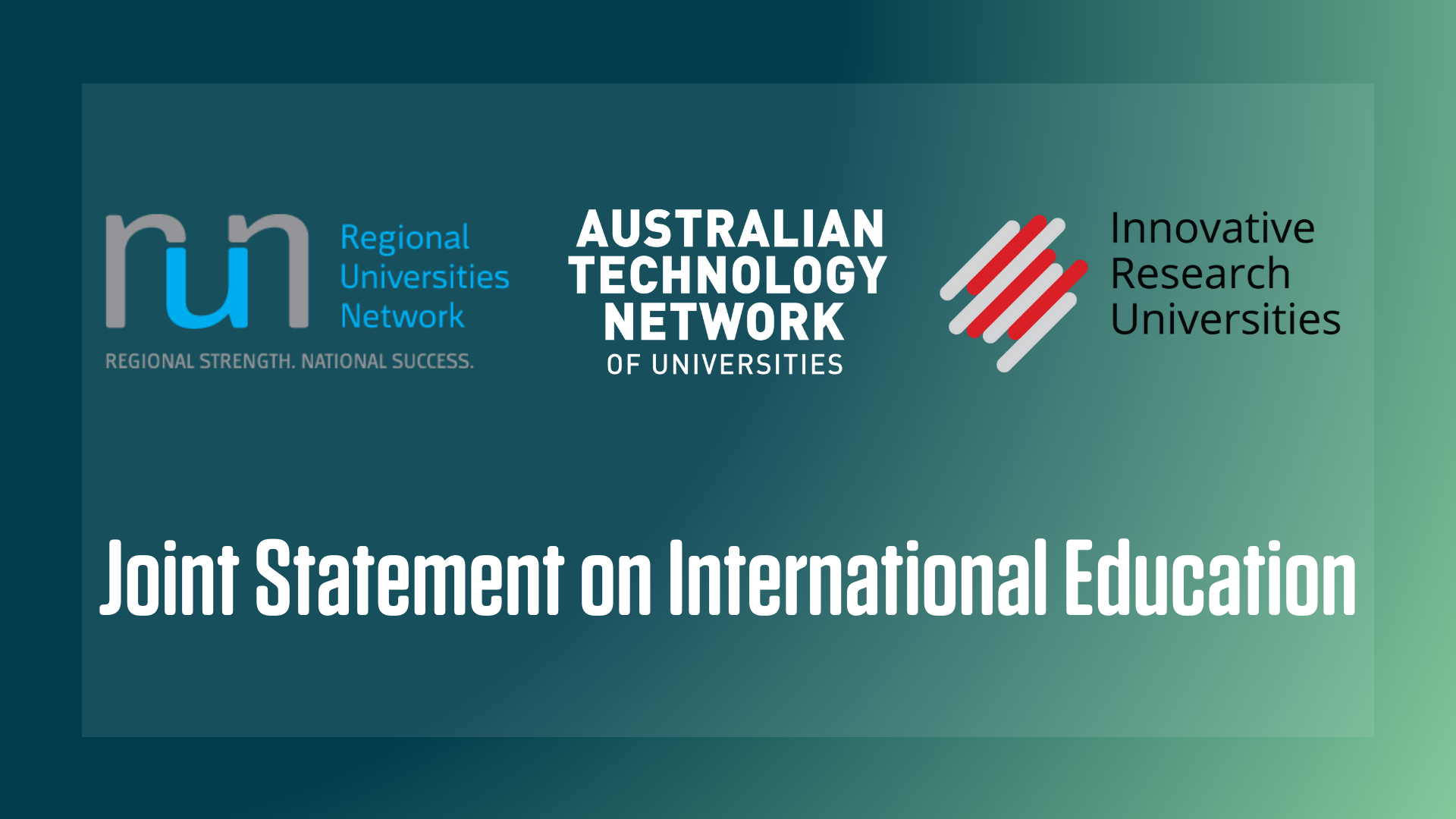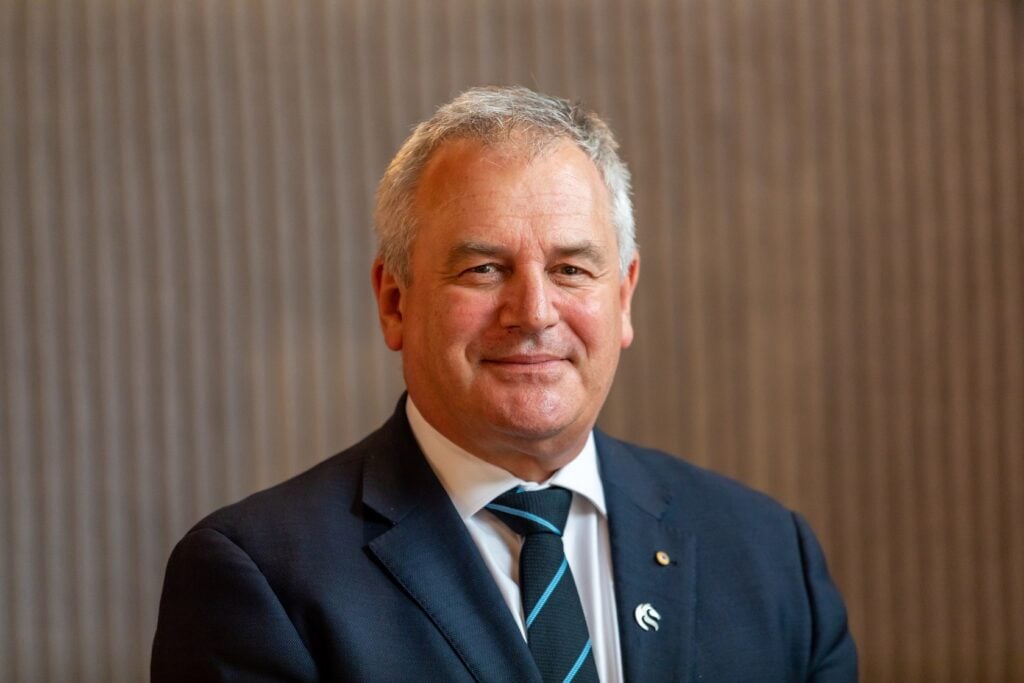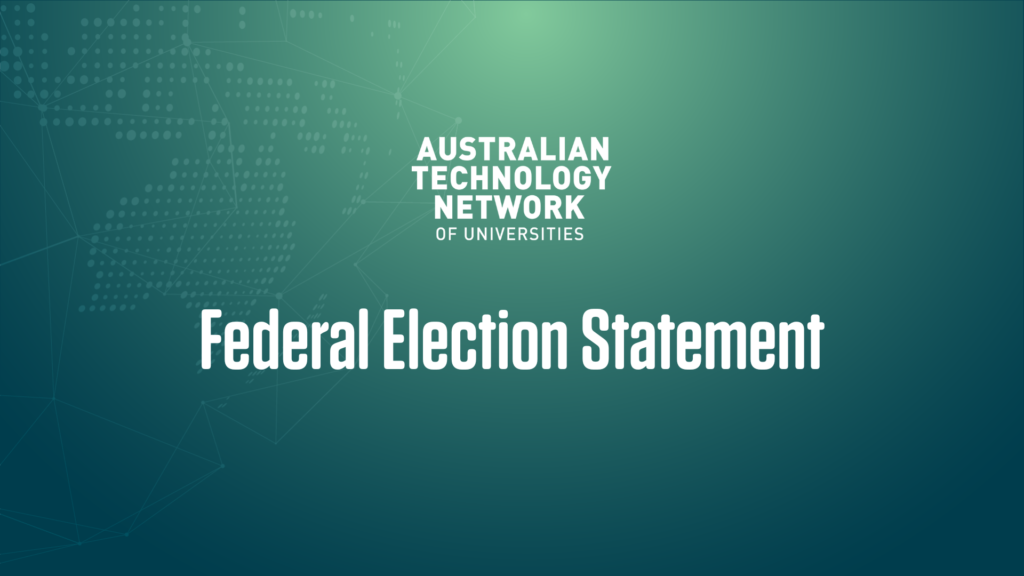A JOINT STATEMENT BY THE REGIONAL UNIVERSITIES NETWORK (RUN), INNOVATIVE RESEARCH UNIVERSITIES (IRU) AND AUSTRALIAN TECHNOLOGY NETWORK OF UNIVERSITIES (ATN)
International education is essential for Australia’s prosperity and global reputation.
The Regional Universities Network (RUN), Innovative Research Universities (IRU) and Australian Technology Network of Universities (ATN) affirm our commitment to working collaboratively with government – and all sides of politics – to find a clear path forward for Australia’s international education sector. This sector is a vital element of our cultural and intellectual exchange with the world, and is a cornerstone of Australia’s economy and communities across the country.
Together, member universities in our networks educate a significant proportion of the international students studying in Australia: twenty institutions educated 120,000 international students onshore in 2023 alongside nearly half a million domestic students. These students contribute to the diversity, vibrancy, and innovation that characterise our campuses and communities. Our international education is high quality and builds much-needed bridges across cultures and nations.
The week ahead is critical for the future of our globally respected international education system.
We support a balanced international education system that places the interests of students at its heart—prioritising quality, sustainability, diversity and equity. A well-regulated and student-centred approach ensures that Australia remains a destination of choice for talented individuals seeking a world-class education in welcoming and inclusive environments.
Action must be taken now to address the unresolved issues associated with the ESOS Amendment Bill still before Parliament, the government’s proposed approach to international student caps, and inequities in the current student visa processing regime. Leaving these issues unresolved until 2025 will not provide certainty – on the contrary, it will further undermine equity and diversification in Australia’s international education system, and unfairly punish some students, institutions and communities.
In the spirit of constructive engagement, we propose a three-step approach to fixing these issues in our international education system.
First, if there is insufficient support for proposed student visa caps, we strongly encourage Parliament to consider the remaining components of the ESOS Amendment Bill which focus on enhancing quality and integrity in the system. These measures are critical for protecting students and upholding Australia’s reputation for educational excellence. Parliament should pass as much of the Bill as possible this week.
Second, immediate action is required to address the current distorted system for visa processing. We need a fairer system to ensure that no student or institution faces unfair disadvantages. And we need confidence that visas will be processed efficiently to enable students to take up their places. This must happen this week. If we wait any longer, it will be too late for many students hoping to commence study in our universities in 2025. We call for a student visa processing regime that is appropriately resourced and based on the principles of:
- Transparency – that is a clearly understood operating environment for students and institutions.
- Repeatability – where the same visa processing outcome will be arrived at for similar students time after time.
- Institutional equality – whereby visas are processed in the same manner for all public universities.
Third, we call for an open and collaborative partnership between all universities and government to develop a shared long-term strategy for international education that protects and enhances Australia’s global reputation as a welcoming and high-quality destination. This strategy should include:
- Finalising the Draft Strategic Framework for International Education and Skills: a consultative approach is essential to ensure that the Framework aligns with the needs of students, institutions, and the broader Australian community.
- Planning for future student accommodation needs: a proactive, collaborative review of varying student accommodation needs across the country will help address current shortages and ensure future readiness as enrolments grow.
- Reviewing the Simplified Student Visa Framework (SSVF) in 2025: this review should assess the framework’s effectiveness and ensure it remains fit for purpose in supporting the international education system, so that other visa processing directives are not required. Our university networks stand ready to work with government, industry, and the wider education sector to realise these objectives. Together, we can build a resilient and forwardthinking international education system that benefits the majority of students and institutions not a minority; strengthens Australia’s global ties; and delivers lasting benefits for all students, institutions, and communities.
Media contacts (not for publication):
| IRU | RUN | ATN |
| Paul Harris | Alec Webb | Frank Coletta |
| Executive Director | Chief Executive Officer | Deputy Executive Director |
| 0497 439 867 | 0408 482 736 | 0468 987 295 |
| www.iru.edu.au | www.run.edu.au | www.atn.edu.au |
Member universities:
| RUN | IRU | ATN |
| Charles Sturt University | Flinders University | Curtin University |
| CQUniversity | Griffith University | Deakin University |
| Federation University Australia | James Cook University | RMIT University |
| Southern Cross University | La Trobe University | The University of Newcastle |
| University of New England | Murdoch University | University of South Australia |
| University of Southern Queensland | University of Canberra | University of Technology Sydney |
| University of the Sunshine Coast | Western Sydney University |


